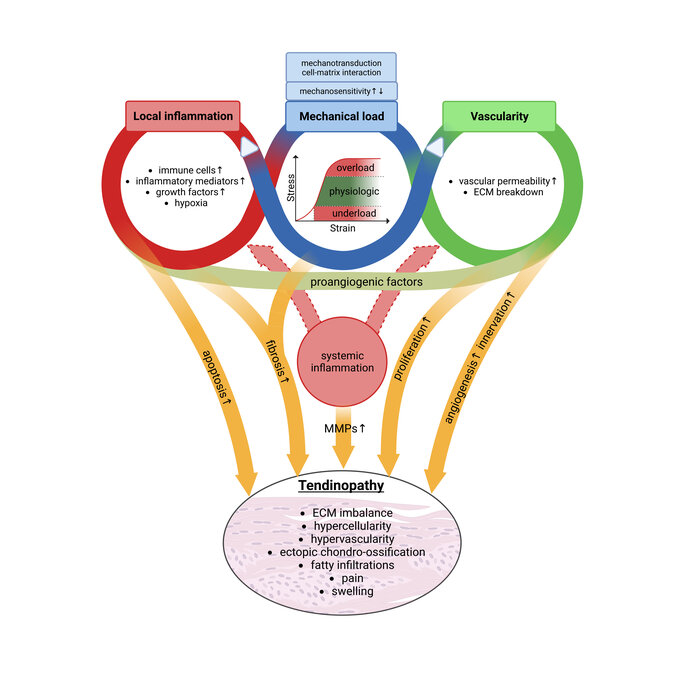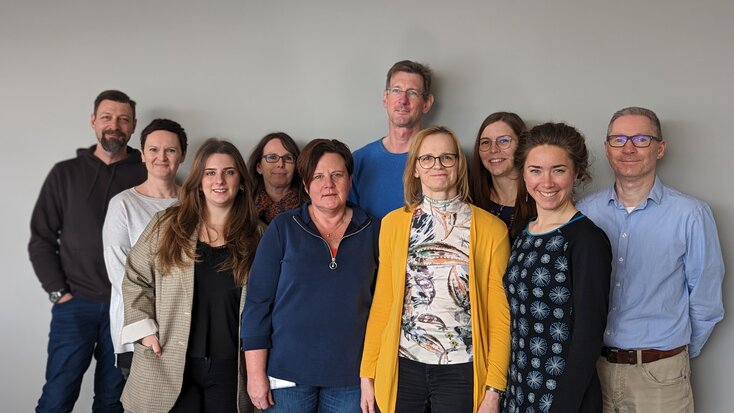Institute of Tendon and Bone Regeneration
Director // Prof. Dr. Andreas Traweger
Tendinopathies - Deciphering Molecular Mechanisms and Innovative Therapeutic Approaches
Tendons are specialized connective tissues that connect muscles to bones, facilitating movement. Approximately 30% of musculoskeletal consultations result from tendon disorders, causing significant personal suffering and high healthcare costs. With the expected tripling of the global population over 80 years by 2050, these numbers are likely to increase. The treatment of tendon disorders, also known as tendinopathies, is characterized by long rehabilitation periods and incomplete functional restoration. Extrinsic factors (e.g., overuse) and intrinsic factors (e.g., chronic inflammation, aging, metabolic disorders, genetic predisposition) lead to cellular changes and alterations in the extracellular matrix (ECM). However, our incomplete understanding of the molecular and cellular processes underlying tendon pathophysiology complicates the development of effective therapies. Advances in research are crucial to developing innovative therapeutic approaches.
Motivated by this urgent scientific and clinical need, our focus is on understanding fundamental processes in tendon healing to enable the development and implementation of new therapeutic modalities in future medical practice.
New Approaches to Enhance Bone Healing
Bone regeneration generally occurs without significant complications; however, in the presence of various comorbidities such as diabetes or osteoporosis, the risk of impaired healing significantly increases. Our research focuses on developing innovative approaches specifically aimed at optimizing bone regeneration under these complex conditions. Through a thorough analysis of biological mechanisms, we aim to establish scientifically grounded strategies to enable improved healing and regeneration in such contexts.
Fo.-Prof. Priv.-Doz. Mag. Dr. Andreas Traweger
Andreas Traweger currently holds a Research Professorship in Regenerative Biology at Paracelsus Medical University in Salzburg. He earned his Ph.D. in Genetics from the University of Salzburg and completed his postdoctoral training at the Samuel Lunenfeld Research Institute in Toronto, Canada (Mount Sinai Hospital). Following this, he served as the Research and Development Manager at Baxter AG in Vienna, Austria, for four years before joining Paracelsus Medical University in 2012.




